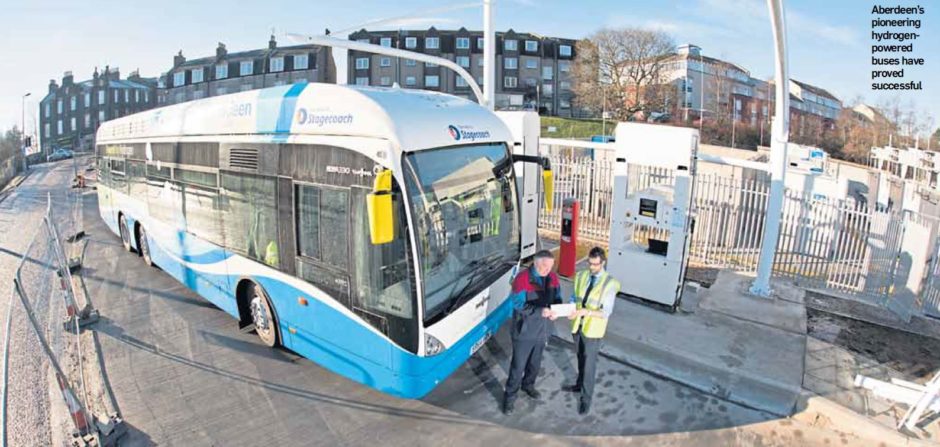
If you’ve read the report by the Committee on Climate Change (CCC) entitled “Net Zero: The UK’s contribution to stopping global warming” then I hope you’re both as impressed with it as I am, but also horrified.
I’m fortunate to have met CCC chief executive Chris Stark a few times when he was with the Scottish Government. He knows what he’s talking about and is a thinker.
In my book that counts for a lot when it comes to people working at his level and with his degree of influence within government circles.
That said, I don’t agree with everything in the report and I most certainly don’t support a lot of what’s in the accompanying technical report.
Regardless of that, it clearly and forcibly makes the case for immediate and comprehensive action to deal with climate change as fast as we can.
It is, however, more than a little concerning that this report wasn’t accompanied by even an outline industrial strategy.
While the technical report, in particular, talks extensively about various technologies, what it doesn’t tell us is how we’re going to develop them, who will do it and
who will pay for it.
I’m sure the CCC will say that’s not their job but for the sake of “completeness” I disagree.
Consequently, I just can’t resist the feeling that once again we’ll be left on the fringes of what is – just like oil and gas was – a massive economic and industrial opportunity that we’ll largely let pass us by.
In fact, we already are. Look at wind.
But that apart, it’s very important we also don’t assume that UK behaviour should act as a guide for all our assumptions as to how we will combat climate change, especially when it comes to deploying technology.
It’s actually much better to look at Europe to see where they’re going rather than trying to pretend we can somehow develop some policies of our own. A classic example is
transport.
The CCC technical report makes a great play about the need to have increasing numbers of electric vehicles, by which, one has to assume, they mean battery powered.
Yet, a government MP at a recent Westminster debate made the very strong point that to maintain the same level of throughput as conventional vehicles a
motorway service station would have to replace its 20 petrol or diesel pumps with 120 so-called Superchargers that would consume up to 14.5 megawatts, or, the equivalent of 32,000 homes.
That’s unlikely to happen, which is why in other countries such as Germany and Denmark, they’ve decided to roll out hydrogen refuelling stations so that they can increase the use of fuel-cellpowered vehicles.
In Denmark there are already nine in operation with a further two being planned for the near future.
Germany has 70 in operation with another 28 in progress.
In contrast, the UK has only 11 stations in operation, two of which
are in Scotland. Only another two are currently planned.
The situation in the UK inevitably leads to the quip, if you
buy a hydrogen fuel cell car in the UK where are you going to refuel
it?
It’s a valid question, but we should really be asking why we’re being forced to accept a technology – batteries – that’s effectively
second class.
It’s like the broadband story. Other countries such as South Korea roared ahead of us and we’re still playing catch up.
Major automotive companies such as Audi understand the
issue. It said recently that it needed to develop fuel-cell vehicles because outside of the almost cultist group of battery electric vehicle fans, the general public wouldn’t accept
slow charge times.
They’re right.
The next generation of vehicles needs to be as convenient to use as the current one.
A motoring journalist recently took 17 hours and five recharge stops to drive from London to the All-Energy Show in Glasgow in his electric vehicle.That’s intolerable.
But it’s not just in transport that we need to be careful about which solutions we adopt.
The CCC technical report refers to heat pumps, hybrid heat pumps (using electricity and hydrogen) as well as pure hydrogen for heat to replace both gas and oil in existing
properties
Heat pumps are electric and currently much more complex and expensive to install than conventional central heating boilers.
Hydrogen-fuelled boilers will cost about the same amount as a conventional gas boiler.
Hydrogen can also be used for cooking if you prefer gas to electric.
New houses should be built to “passivhaus” standards: perfectly insulated and 100% airtight.
The aim is to have effectively no heat source except in extreme
conditions.
There’s lots to do but being overly prescriptive at this stage of the game is not helpful.
The main CCC report is fine but I’d argue the technical report needs to be treated as interesting but neither a plan nor a manual on how to fix the climate change emergency.
Dick Winchester is a member ofthe Scottish Government’s Energy Advisory Board.
Recommended for you
